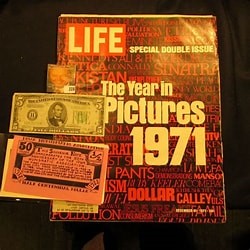Further Thoughts Regarding Psychological Betrayal and Manipulation
Words, Thought, and Psychology
Words matter. They are tools that can help us to think, to become aware, to process experiences and derive meaning. They can also be used as weapons, which is primarily what fifth generation warfare is all about; forging swords from language. Knowing the power of words, propagandists often seek to subvert or redefine the meaning of words to advance hidden (or not so hidden) political and social agendas.
The use of the mental tools of words and language, to a significant extent, appear to be one key component of what separates modern Homo Sapiens from most other species. Many other mammals, reptiles, birds appear to process ideas more as images – a sort of internal emotional moving picture- which is quite different. This use of words as indirect virtual derived representations of actual reality can be quite powerful, but it creates an extra layer, a boundary between our internal dialog and actual experience and tangible reality.
In both these Substack essays (“Who is Robert Malone”) and in a wide variety of podcasts and lectures, together with others (including Dr. Mattias Desmet) I have previously explored a variety of topics which relate to the psychology of the COVIDcrisis. Examples include the phenomenon of Mass Formation (or Mass Psychosis), Group Think, Scientism, the Gell-Mann Amnesia effect, Fifth Generation Warfare (PsyWar), the Overton Window, and many other related topics. Most of these focus on how our ability to think, feel, and access information has been manipulated by governments, NGOs, and various globalist organizations during this alarming period, and how it has impacted our own collective and individual psychological states (and mental health).
What I have not explored is the profound mental impact which many (including myself!) have experienced upon encountering and coming to grip with the realization that we have been manipulated and lied to, repeatedly, by institutions and organizations which we once trusted. Yes, we all knew that there was some degree of collusion between US Government partisans and the likes of the NY Times and Washington Post, but I (for one) had no idea how deeply all of corporate media and social media – what many would now call state-sponsored media- were acting as agents of the US Government bureaucracy and “intelligence community”. And then there is the capture of the academic media/press and virtually all medical-related specialty organizations by the pharmaceutical industry. It goes on and on.
The Shock of Realizing you have been Repeatedly Lied To
Speaking personally, I have largely experienced these things as if they were personal assaults. It has left me feeling disconnected from the prior realities which I had relied upon – my internal model of the way the world world works profoundly shaken.
My friend and colleague Dr. Paul Marik tells a fascinating story contrasting his former rather structured life as a high status (and highly published) University hospital-based physician to his present reality. Paul, after experiencing so many shocking events during the COVIDcrisis, and seeing first hand how corporate media spun falsehood after falsehood in support of a (false) approved narrative, got to the point where he could no longer come home from his job and retreat into the pages of the NY Times and Washington Post. Now he has come to the point where he has completely lost faith in the objectivity and integrity of the “peer reviewed” academic medical/scientific literature upon which he had built his professional world view.
Many have used the terms “Existential Shock” or “Existential Crisis” to describe the psychology of confronting a gulf between what one believes and what one encounters, but I suggest that the relatively new (and rarely encountered) terms “Ontological Shock” or “Ontological Crisis” are more appropriate.
Epistemology, Scientism, and Three Domains of Knowledge
Epistemology, which seeks to understand one or another kind of cognitive success (or, correspondingly, cognitive failure), is a branch of intellectual inquiry which aims to explore this paradox, the gap between our internal representation of reality and that which is tangible and measurable. In prior essays focused on examining the difference between “Science” and “Scientism”, I have provided a brief introduction to this area of inquiry (see : “Science versus Scientism (Part 1); More root cause analysis of the COVIDcrisis” and in particular “Science versus Scientism (part 2); Continued root cause analysis of the COVIDcrisis”).
Quoting from the second of these (part 2) essays-
What is actually known or proven? What is knowable or provable? Personally, for the sake of trying to make sense out of things, I like to divide the world up into three domains: the known, the knowable unknown, and the unknowable. I believe that there is objective reality, an approximation of “truth”, within the realms of the known and the knowable unknown. In my belief system concerning the “doing” of science, it is the job of the scientist to master knowledge of as much of the known as possible, and then to venture into the knowable unknown for the purpose of capturing and bringing fragments of that world into the domain of the known. Good scientists are (by nature, training and practice) like pioneers or traders that move between the realms of known and knowable unknown. Upon bringing back some fragment of what they believe to be truth, they then subject each other to a form of “intellectual torture by criticism” when seeking to correctly interpret that fragment which has been brought back into the realm of the known.
In contrast to those who practice science, I believe it is the job of philosophers and those who focus on the spiritual realm to provide some structure to the unknowable. To help us to come to terms with mysterious aspects of the unknowable (such as what happens after death, or the existence of a higher power or purpose) so that we can come to terms with the mysteries which resist measurement and quantitation. This is in no way to say that these mysteries do not exist, or that God does not exist, or that there is no form of consciousness after death. As far as I am concerned, the answers to these eternal questions are matters of faith, not of science. Personally, I am convinced that there is something deeply mysterious and wonderful about sentient beings including ourselves. An emergent property which defies rational explanation, and cannot be quantified on some utilitarian or economists spreadsheet. As a scientist, my sense is that this is not something that can be reduced to the domain of the known, as it defies measurement – at least at this point in time. In my internal model of the world, this emergent property of sentient beings, the basis for this luminous transcendent wonder which we often call the soul, resides in the realm of the unknowable unknown. It seems to live in the realm of the unconscious, not in the analytical conscious mind. And since it cannot be measured or quantitated, it defies utilitarian optimization.
Ontological versus Existential Shock
Which brings me to the topic of trying to improve the understanding and definition of the terms Ontological and Existential Shock. So that these words, this language, can become more useful in examining and thinking about the impact of the COVIDcrisis deceptions and lies, as well as the new assaults from our government, Silicon Valley and the press on each of us.
These terms consist of an adjective used to modify a verb. “Ontological” refers to ontology, a noun. Websters defines ontology as:
Ontology
1: a branch of metaphysics concerned with the nature and relations of being. Ontology deals with abstract entities.
2: a particular theory about the nature of being or the kinds of things that have existence
But as a biologist, I know of the term “Ontology” as relating to an ordered structure of relationships between tangible things, ergo the ontology of the species. You might refer to this as the classification of organisms and their relatedness to each other, a concept grounded in the logic of biological evolution and speciation. Very much real, measurable, non-theoretical and non-abstract entities.
In contrast, Websters defines “Existential” as:
Existential
1: of, relating to, or affirming existence. existential propositions
2a: grounded in existence or the experience of existence : EMPIRICAL
2b: having being in time and space
When first encountering the term “Ontological Shock” while reading Justine Isernhinke’s deep dive into the brave new world of the known and unknown of UFOs and UAPs, I had to look that up. Clearly the term is a relative infant in the world of language. I found a range of definitions from “(philosophy) The state of being forced to question one’s worldview.” to “Ontological shock is a philosophical term that refers to the state of being forced to question one’s worldview. It is a natural process that occurs during the purification of the soul. Ontological shock means to change one’s thoughts and views of everything they believe in, and to think in a completely different way of all things. It can also refer to the discovery and existence of extraterrestrial life on earth.”
Completely unsatisfied by the few available definitions, I invested time in trying to trace the origin of the term “Ontological Shock”. It appears to originate in an obscure academic paper describing findings of a 2018 British study focused on how small business people respond to a major flood event.
Harries, Tim; McEwen, Lindsey; Wragg, Amanda”
This article uses a sensemaking approach to understand small firms’ responses to the threat of external shocks. By analysing semi-structured interviews with owners of flooded small firms, we investigate how owners process flood experiences and explore why such experiences do not consistently lead to the resilient adaptation of premises. We, conclude that some of the explanation for low levels of adaptation relates to a desire to defend existing sensemaking structures and associated identities. Sensemaking structures are only revised if these structures are not critical to business identity, or if a flood constitutes an ‘ontological shock’ and renders untenable existing assumptions regarding long-term business continuity.
Anticipating and trying to head off future attacks by Social Media trolls, bots, and other haters when using the term in essays and tweets, I decided to look up the psychological literature regarding “Ontological Shock” and came up with a dry hole. In contrast, the commonly overused terms “Existential Shock” and “Existential Crisis” are supported by a rich body of scholarly work, to the point where they have been generalized to almost any organizational or personal paradox.
After much discussion and thought, I have come to conclude that these terms, “Ontological and Existential Shock” describe different but psychologically-related phenomena. Properly used, “Existential Shock” refers to a boundary event, a psychologic singularity, which causes an individual to question the nature of being and not-being. Life and death. Unfortunately, “Being and Nothingness”, the seminal work of Jean-Paul Sartre which largely defines the philosophy of “Existentialism” appears to rather confuse all of this (attempt at ontology), with its more complete title of “Being and Nothingness: An Essay on Phenomenological Ontology”. But upon examination, note that his title basically formulates Existentialism as a sub-category of Ontology – that being Phenomenological Ontology.
Being and Nothingness is a philosophical masterpiece by Jean-Paul Sartre, published in 1943. It explores the human condition, arguing that we alone create our values and that our existence is characterized by freedom and the inescapability of choice. Human consciousness is constantly projecting itself into the outside world and imbuing it with meaning. Sartre places human consciousness, or no-thingness, in opposition to being, or thingness. Consciousness is not-matter and escapes all determinism. Being and Nothingness is a major cornerstone of modern existentialism and encompasses the dilemmas and aspirations of the individual in contemporary society.
I suggest that what Dr. Paul Marik and I, and perhaps many of you have experienced is more properly termed “Ontological Shock” rather than “Existential Shock”. Existential Shock relates to an event which triggers a psychological crisis in which the individual comes to a point of crisis in questioning what they had believed to be true regarding the nature of being. It involves questioning one’s internal model of the nature of existence, of the role of metaphysics and religion and other fundamental philosophical belief systems.
In contrast, “Ontological Shock” involves one or more events which cause one to question an internal model of how the world works, what is true and untrue, and to question previously held assumptions relating to trust, teaching, and learned models of physical reality and history – interpretation of the tide of events which flow through our lives and provide key event “meanings” which we rely upon to assemble our internal models of what is true and what is false. I suggest that “Ontological Shock” is the more appropriate term to describe the experience of encountering the lies, censorship, propaganda and misdeeds of those responsible for gross mismanagement of the COVIDcrisis.
And in this lies yet another key insight into why some of us have had our worldview turned upside down by the flow of events and lies which we have all experienced since the beginning of 2020, while others have not.
Again citing this fascinating but obscure study regarding adaptive and maladaptive responses of business people to flooding events cited above-
“some of the explanation for low levels of adaptation relates to a desire to defend existing sensemaking structures and associated identities”.
Some are able to objectively evaluate the data, the inconvenient facts of the lies and self-serving manipulations which we have all been subjected to by organizations previously believed to be acting in our (collective) best interests, while the horror of the reality is just too much for others, who retreat into defense of their “existing sensemaking structures and associated identities”.
In Conclusion
There is a rich body of literature and medical guidelines regarding the origins and treatment of existential crisis, including various self-help tipsheets. However, the relevance of this work to the syndrome of “Ontological Shock” is unclear and will require further investigation.
What is clear is that, for a large subset of the global population, the fabric of society has been rendered by the mismanagement, misdeeds, opportunistic exploitation, lies and propaganda which have become key characteristics of the COVIDcrisis. Whether or not the fabric of trust which is necessary to maintain a functional and civil society can be repaired without major social upheaval remains to be determined.
This is the risk of the aggressive propaganda and denialism being pursued by the governments and organizations which are seeking to cover up their misdeeds. As resolution of this disruption continues to be delayed, the different sides (or social “tribes”) grow further and further apart, and the effort and sacrifice required to reconcile differences will continue to increase.
Only time will tell if the deployment of global and national industrial censorship and fifth generation warfare psyops/propaganda technologies on civilian populations will be sufficient to maintain the “existing sensemaking structures and associated identities” of those who are currently in denial about what has been done to them in the name of “public health”. But the history of large scale intelligence and psyops campaigns is littered with tales of unanticipated blowback.
Those who are guilty of COVIDcrisis crimes may emerge unscathed, or their actions may trigger a cascade of events which, if set in motion, may once again reinvigorate the lines spoken by Mark Antony in Act 3, Scene 1 of Julius Caesar:
“Cry ‘Havoc!’, and let slip the dogs of war.”







